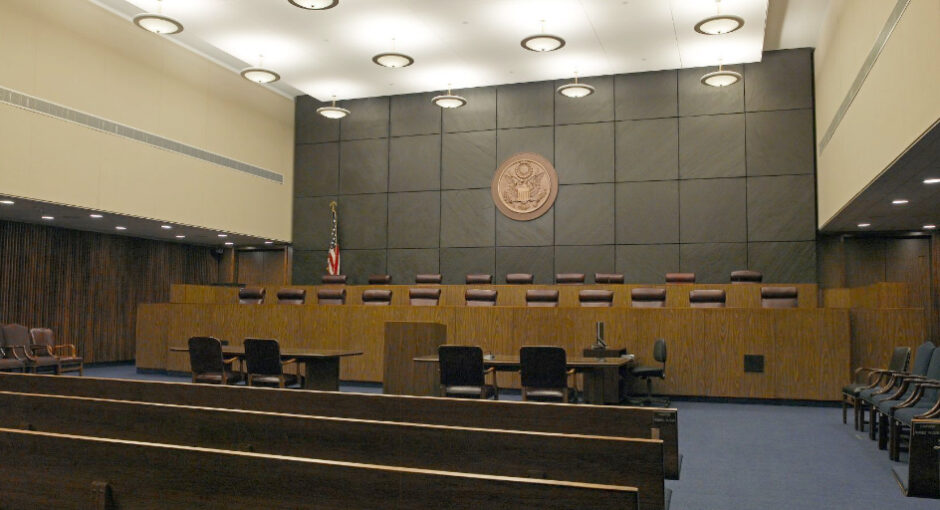Two judges on a three-judge federal appeals court panel this morning challenged a federal government lawyer’s stance that federal law forbids drug manufacturers from limiting how their drugs may be distributed when they offer to sell the drugs at reduced 340B prices.
The U.S. Third Circuit Court of Appeals in Philadelphia heard arguments today in cases by AstraZeneca, Novo Nordisk, and Sanofi challenging the government’s May 2021 findings that the companies’ conditions on 340B covered entities’ use of contract pharmacies violate the 340B statute.
We will report in greater depth Thursday on today’s court hearing.
Lawyers for all three manufacturers—including Sanofi lawyer Noel Francisco, U.S. Solicitor General under President Trump from 2017 to 2020—told the judges that, to resolve the litigation, the court simply needed to determine whether the 340B statute’s “shall offer” language requires manufacturers to deliver drugs to contract pharmacies wherever entities want. The plain text of the statute imposes no such obligation, the lawyers said.
U.S. Justice Department attorney Daniel Aguilar countered that if each of the more than 700 manufacturers that participate in 340B can set distribution conditions on offers of 340B pricing before they will deliver drugs to pharmacies, “then covered entities need to navigate a web of hundreds of potentially different policies … and that goes to the question of whose program is this to administer.” Congress invested that authority solely with the secretary of Health and Human Services, and the U.S. Supreme Court agreed in a 2011 case, Aguilar said.
Judges Thomas Ambro (a Clinton nominee) and Stephanos Bibas (a Trump nominee) both told Aguilar the government’s position that manufacturers may not impose distribution conditions on 340B sales appears to conflict with manufacturers’ responsibility to restrict access to potentially harmful specialty drugs.
Ambro asked Aguilar if a manufacturer of a specialty drug told entities, “We are only going to offer this provided it be distributed at a place that has specialized personnel…does HHS view that condition as a violation of the 340B program?”
“Yes,” Aguilar said.
“You’re saying the manufacturer has to continue distributing it through all these different pharmacies when they might get sued for not narrowing this down? Bibas asked.
“I’m saying the 340B statute sets out a system by which manufacturers or covered entities have complaints or concerns about how the program is operated, there is a reticulated scheme for addressing those,” Aguilar said.
Several minutes later, Ambro asked again if it would be a violation of the 340B statute if a manufacturer limited distribution of a specialty drug “only to those locations or contract pharmacies with specialized personnel.”
“Yes, they can’t impose that kind of condition at the outset,” Aguilar said.
“Maybe technically that’s right, but in the real world, somebody could die by not getting specialized personnel advising them at the particular pharmacy they go to,” Ambro said.
Earlier during the hearing, Judge Cheryl Ann Krause (an Obama nominee) asked Novo Nordisk attorney Ashley Parrish, “if we conclude must-offer does include some delivery obligation,” what types of obligations might apply.
Parrish answered, “If you were a supermarket and you have a 50% discount off of milk…no one would think that means you could call up and say I’d like you to deliver that to my grandmother in New York and my cousin in California and my friends in Indiana.”
“That’s the argument the government relies on,” he continued. “You’ll notice the government doesn’t identify anything in the statutory text that supports that.”
ADR Ruling Comes Into Play
Today’s oral arguments before the Third Circuit Court also marked the first time that any of the three appeals courts considering the legality of HHS’s 340B program violation letters to manufacturers asked attorneys about the legality of the 340B administrative dispute resolution process. Sanofi, as part of its lawsuit, is challenging the 340B ADR final rule.
Ambro and Bibas both appeared to express skepticism with Aguilar’s argument that HHS did not withdraw its 340B ADR proposed rule in 2017. Sanofi argues that HHS did withdraw the rule and should not have resurrected and finalized it as it did in 2020 without going through notice and comment. Aguilar argued that the rule was never withdrawn because HHS never published a notice of withdrawal in the Federal Register.


